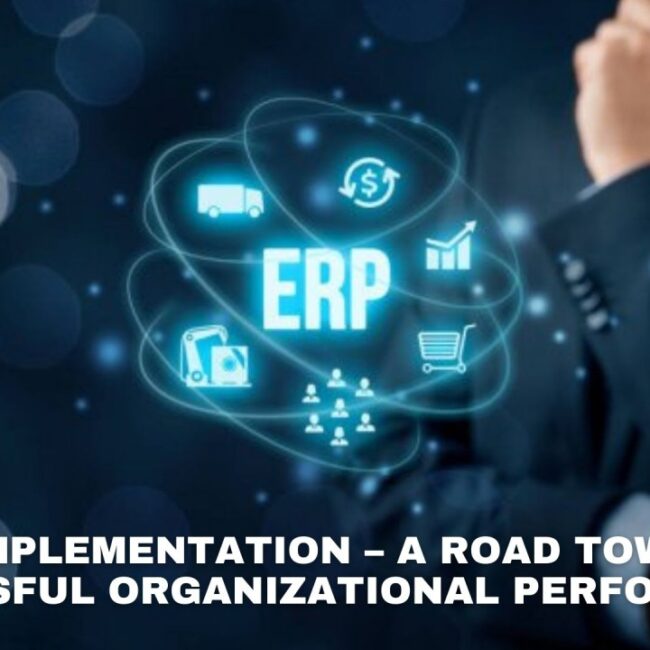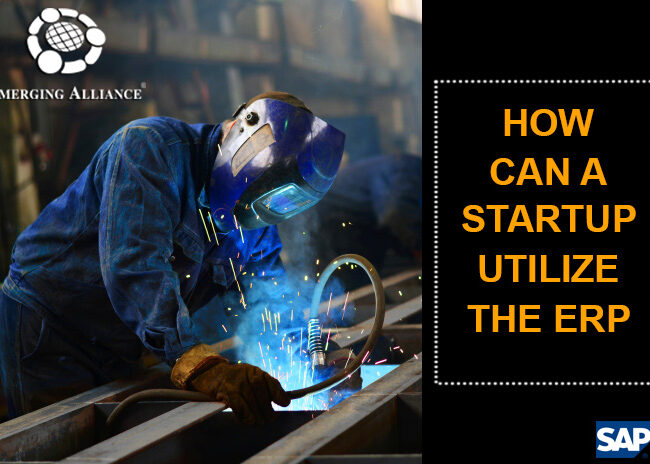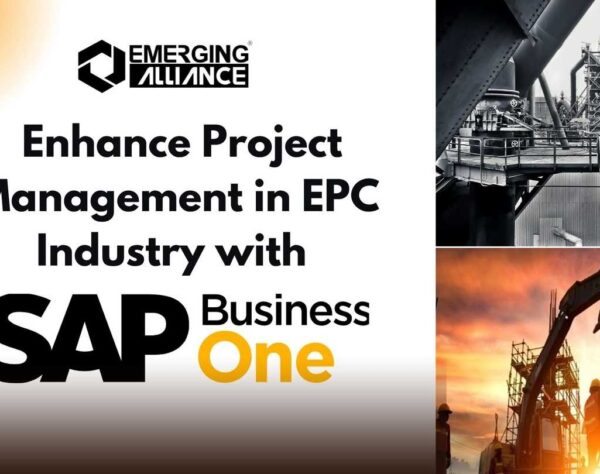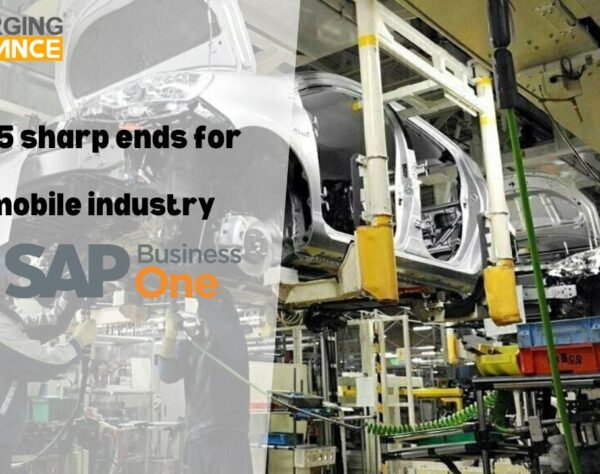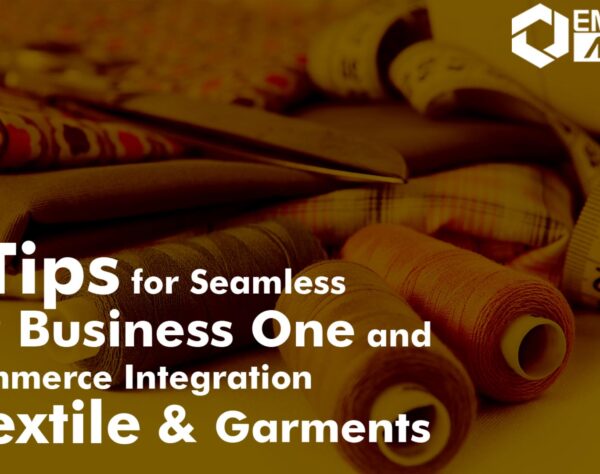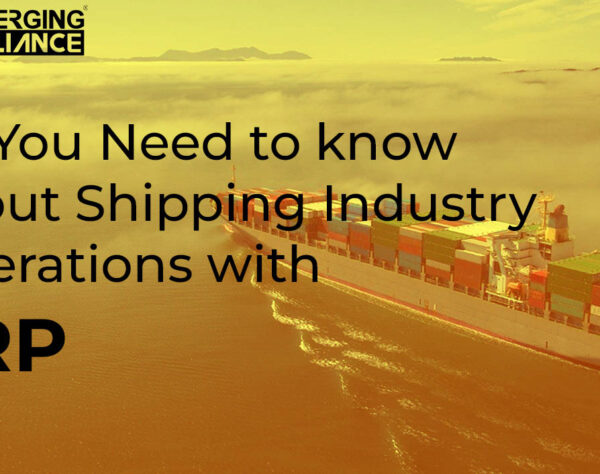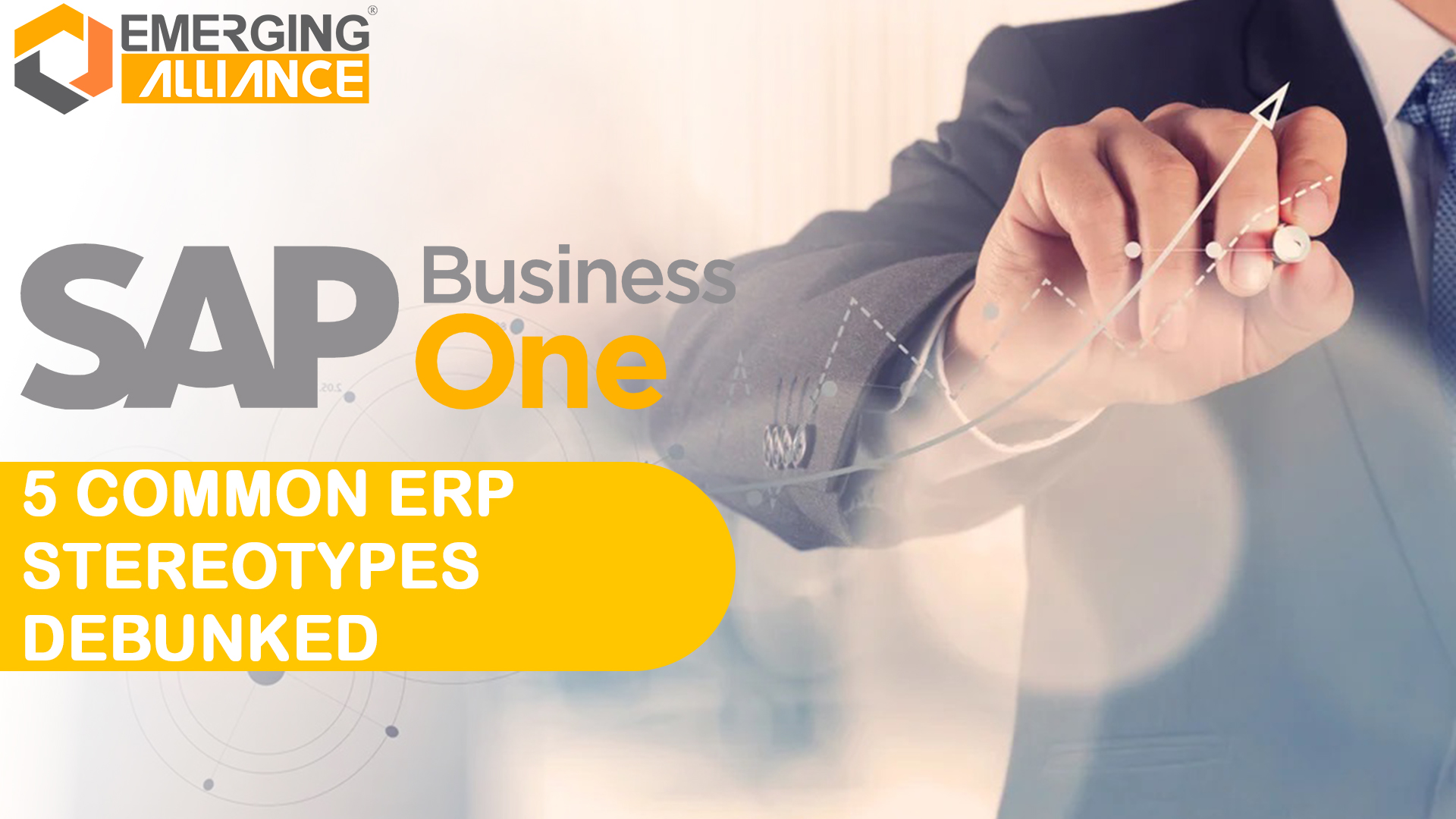
5 COMMON ERP STEREOTYPES DEBUNKED
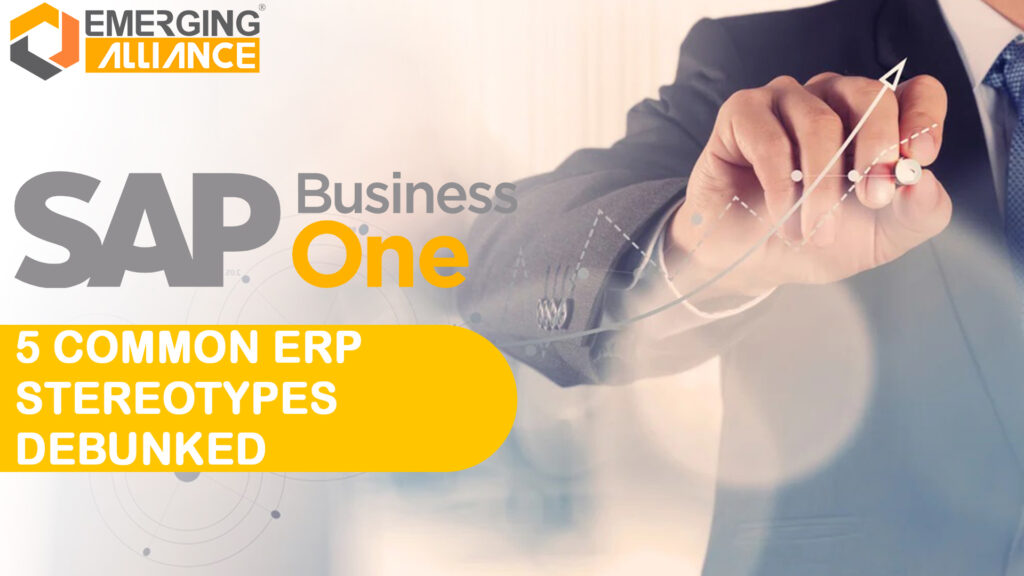
5 common ERP stereotypes debunked
ERP has been around for more than 30 years now. Millions of companies have successfully implemented it, yet the same myths come back time and again. The typical stereotypes around ERP still raises questions on small and mid-sized business owners especially, before investing in a reliable ERP. Here is the reality behind the persisting ERP myths and all the more reasons they are just baseless myths and why you need not have to worry about them.
Myth 1: SME’s Don’t Need ERP
Many small and even mid-sized companies still believe that ERP is too complicated for them and that they can run their businesses efficiently without the benefit of an ERP system. While it is possible to run a business with just spreadsheets and hand-written lists, it is incredibly time consuming and error prone, not to mention it is expensive and will cost at the end of the day more than running an ERP in terms inefficiency, increased effort, data security and overheads. The reality is that with an ERP system designed specifically for small businesses, implementing ERP makes business processes more efficient and saves time and effort. With ERP, a small company can compete successfully with larger companies because of the insight and efficiency that ERP brings. Thinking ERP is a luxury that SME’s cannot afford or do not need is a theory far long gone. Investing in an ERP uplifts the entire way of running a business especially with in this time and age.
Myth 2: Implementing ERP Takes Years
When ERP solutions were first introduced, implementations sometimes did take years. And they still can especially if you’re implementing a “tier one” ERP solution, with very heavy customizations & unique business requirements, but there is no reason that an ERP system designed for a specific industry vertical like SAP Business One, which is targeted for small and mid-sized companies should take more than a few months to go live. Faster implementation results in faster ROI, so it makes sense to move quickly.
Myth 3: An ERP is costly and complicated:
It is a common misconception that ERP is a costly affair and is way too complicated for every user to work with. However, they are a misconception for a reason and is way off from the actual facts and reality. A cloud based ERP is very sensible, easy to use and navigate and a whole lot cheaper than its equivalent counterparts. There are no additional licenses or hardware required, making them very affordable overall. An ERP offers a simple, easy to use web interface making them very easy to use and seamless to adapt.
Myth 4: Integrated ERP Is the Only Way to Go
People sometimes wrongly believe that “best of breed” ERP solutions are inferior to integrated ERP. Best of breed tends to get the reputation that it’s going to take costly, custom integrations to get everything working together. But too often, SMB manufacturers settle for an integrated ERP system that doesn’t provide all the necessary functionality that is needed and has gaps in required areas. Many best of breed ERP vendors have built-in integrations with popular software programs to offer you the best of all possible worlds, superior functionality and the ability to continue using programs you’ve already invested.
Myth 5: All ERP Solutions Are the Same
While most of the ERP solutions share similar core modules, they differ a great deal. Some ERP systems are designed for multiple industries, so the business processes may include extra steps that don’t make sense in manufacturing or trading, or they may use unfamiliar terminology. Other ERP systems are designed for large enterprises, so the business processes are complicated and require multiple steps and approvals. The best ERP solution for any company is one that focuses on a specific industry and company size because that will offer the best combination of required functionality and efficiency. ERP provides customization varying and depending on the user/ customer needs making each of them unique from the other. ERP enables the company to have exactly the modules and functions they need without adding a lot of complex overhead that slows things down.
For your company to grow and thrive in today’s market, you definitely need an ERP. If you are not, you might be running an outdated business completely dependent on loads of labor, data and paper work. Its high time you embrace an intelligent ERP throwing all these myths away. Choosing to implement in an ERP is one decision you’ll always look back and do it over and over again.


